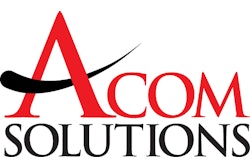Provider offers retail sector a multi-channel enterprise data repository for single system of record for critical reference data
San Francisco — January 12, 2004 — Evant, a provider of retail planning and demand chain management software, has released a new multi-channel enterprise data repository solution designed to let retailers, wholesalers and distributors establish a single, integrated system of record for all critical reference data categories, including product, location, time period, vendor and customer.
The solution provider said that its Enterprise Information Management (Evant EIM) solution will let companies integrate mission-critical enterprise systems through a centralized data repository, which serves as a "clearing house" that ensures data accuracy, as well as its delivery into relevant enterprise systems, via an event-driven messaging and alert framework.
"In developing Evant EIM over the past two years, we determined that simple product information management is not enough to support the current and future needs of larger companies," said Mike Matacunas, vice president of product strategy at Evant. "Instead, companies must create a holistic view of product information that is integrated with all other critical reference categories and [that] manages the cross-channel workflows associated with them."
Evant said that EIM can provide companies with faster time to market with products and promotions and help reduce supply chain costs by up to 1 to 3 percent, based on estimates from consulting firm Cap Gemini.
In addition, the provider cited such potential benefits as reduced purchase order errors, the establishment of multi-channel operations (catalog, Web, direct, store), the extension of data to trusted suppliers and collaborators, integration with UCCnet and the creation of a single version of the truth among all enterprise information systems with "minimal impact" on the way people work and the tools they use.
EIM is based on a J2EE architecture, and the browser-based solution is database independent.





